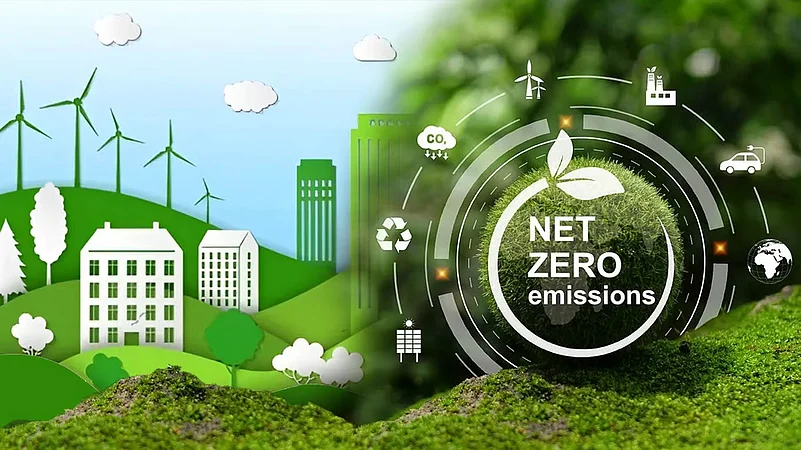With the COP29 meeting marking its second day, discussions on climate commitments and finance loom large. An assessment of the performance of G20 member countries against their stated net-zero goals reveals that developed countries collectively are not on track to meet the 43 per cent carbon reduction target by 2030.
A study titled ‘Are G20 Countries Delivering on Climate Goals? Tracking Progress on Commitments to Strengthen the Paris Agreement’ assesses the performance of these countries on 42 indicators, including the five critical ones: international cooperation, national measures, sectoral robustness, enablers, and climate adaptation efforts.
The performance of the countries has been categorised under the following heads: ‘Leader,’ ‘Reasonable effort,’ ‘Limited effort,’ and ‘Needs improvement.’ Most G20 nations are in the ‘reasonable or limited efforts’ bracket and none is a ‘Clear Leader’ according to the study by India-based think tank, the Council on Energy, Environment and Water (CEEW).
At the launch of the study, CEEW CEO, Dr Arunabha Ghosh said the G20 countries need to step up in terms of their climate action and commitments. “In COP29, actions must be measured, and accountability must be enforced,” he said.
The study found that countries like the United States, Canada, Australia, Saudi Arabia and Turkey have displayed weak commitment and sporadic engagement with international agreements. Among countries in the Global South, India, Brazil, and South Africa have shown significant progress in climate action by actively participating in key agreements, undertaking reasonable efforts domestically, and adhering to their obligations. However, these countries need a deeper push and catalytic climate finance to create more resilient sectoral policies, the study points out.
Ensuring Climate Accountability
The study stresses the need to accelerate the pace of net-zero transitions among developed countries. “Developed countries must pick up the pace and make immediate deep cuts in emissions and step up their commitments,” says Ghosh.
It is just as important to prioritise data transparency as it determines the success of efforts across the spectrum, from loss-and-damage to adaptability. Studies estimate that 65% of reported climate events worldwide lack economic impact data, hindering the ability of the stakeholders to direct resources to areas where it is needed the most, the study finds.
To enhance accountability, climate finance needs to be dealt with far more seriously. According to the study, none of the developed countries has deposited 100 per cent of its pledged climate funds. The developing world, excluding China, needs $2.4 trillion per year in investment till 2030, including $1trillion from external sources. The flow of finances to developing countries needs to be not only adequate, but also dependable, concessional and new.
Experts suggest that COP29 should focus on a New Qualified Quantified Goal (NGQG), anchored in qualitative and quantitative needs. Its target and structure must be shaped by the learning from previous efforts at mobilising climate funds. Additionally, climate finance from developed to developing countries should include public grant capital or the grant equivalent of other forms of public capital, alongside private capital flows.
India’s Ambition in Action
India has demonstrated leadership and its resolve to improve and facilitate action aligned to its emission reduction ambition. A CEEW study shows that India’s climate policies are set to reduce CO2 emissions by 4 billion tonnes by 2030. This is nearly 1.6 times the European Union’s CO2 emissions in 2023. According to Ghosh, this represents a country’s ambition in action. However, he points out that it needs to be backed with adequate climate resources and finance, not just in the case of India but in all developing countries.
The country’s policies in the power, residential, and transport sectors have pushed India towards a higher share of renewables in its energy mix, increased adoption of electric vehicles as well as improved energy efficiency in domestic air conditioning.
COP29’s Priority
Experts, including Ghosh, highlight that protecting the most vulnerable countries must lead the agenda at COP29. Developed countries fare well in domestic adaptation efforts, but it is the developing countries that bear the brunt of climate events as they are relatively less equipped to mitigate the impacts.
Climate finance contributions must extend beyond mitigation efforts and encompass robust adaptation efforts, accompanied by loss and damage mitigation. Experts say a significant outcome of COP28 was the establishment of a fund to mitigate loss and damage. This year’s COP deliberation should look at who pays and who receives from the Loss and Damage Fund, experts added.




























